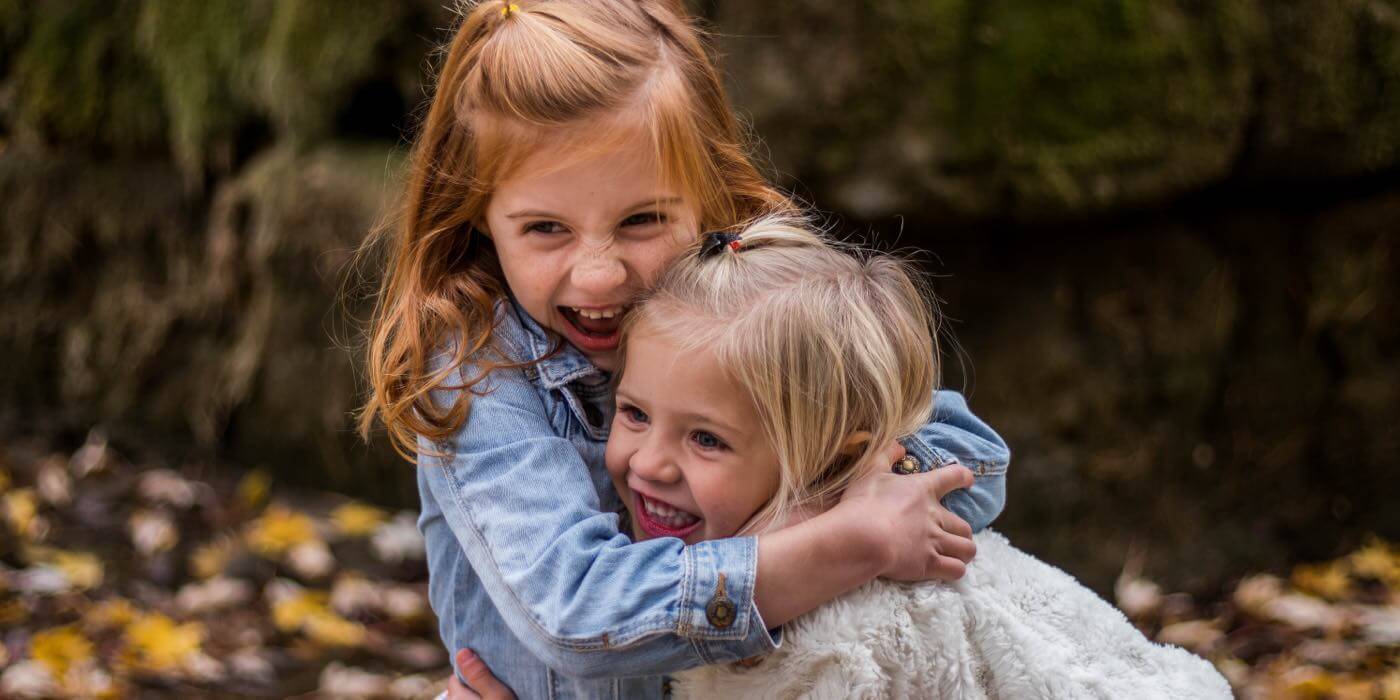There are many reasons people end up struggling emotionally.
From our genetics and temperament to what we eat for breakfast, our ability to effectively manage difficult moods and emotions is a complex thing. But over the years working as a psychologist and therapist, I’ve noticed that a lot of our difficulty managing difficult moods and emotions boils down to this:
Most people never learned much about emotions as kids—what emotions are, how they work, or how to work with them in a healthy way.
So on a pretty basic level, emotional resilience is an education problem.
And just like a little bit of reading every day can have enormous positive impacts on a child’s academic future, a little bit of emotional education can go along way toward helping our kids become emotionally intelligent and resilient adults.
Luckily, you don’t have to be a psychologist or mental health professional to give your kids a good emotional education. What follows are 5 simple tips anyone can use to help their children become more emotionally intelligent and resilient in the face of adversity.
1. Praise Actions, Not People
Most days when I get home from work, one or two of my daughters rush over to me with a big piece of brightly-colored paper flapping in their hand saying, “Look what I made for you, daddy!”
Usually, my gut instinct is to reply with something like this:
- Wow, honey, it’s beautiful!
- Or, Oh my gosh, you’re getting to be such a great artist!
Responses like this are natural enough. As a parent, I love that my daughters are being creative and doing something they really enjoy. And naturally, I want them to feel good about themselves for that! So praising them and their art is more of a reflex than a decision.
Unfortunately, despite my best intentions, it’s not a great idea to praise my daughters or their artwork. Here’s why….
Praise is a reward—or as we psychologists like to say, a reinforcer. When a specific behavior is followed by a pleasurable reward, that reward reinforces (or makes more likely) the behavior that came before it. For example, give a dog a treat when they sit on command and they’re more likely to sit on command in the future.
Similarly, if you praise your kid for their artwork or for being a great artist and they’re more likely to….
Oh wait, a second… see the problem here?
When I praise my daughters for being great artists, I’m not praising a specific action, I’m praising who they are—something they don’t actually have direct control over. Similarly, when I praise their work for being beautiful, I’m not praising an action, I’m praising the value of their art—again, not something they have direct control over.
In other words, when I praise my daughters or their work, I’m rewarding something they can’t actually control—how they’re perceived as people and how their work is valued by others.
Unfortunately, when kids grow up believing that the most valuable things are all things they can’t actually control—what people think of who they are and what they produce—it’s a set up for the exact thing we as parents are working so hard to prevent: low self-esteem.
When you praise your kids for who they are or the results they produce, you’re training them to value other people’s opinions of them over everything else.
It shouldn’t be hard to see why that’s a set-up for unhappiness and emotional struggles as an adult.
The alternative is to get in the habit of praising our kids for the things they actually have control over—their actions.
For example, when your kid runs to show you their newest work of art, instead of rushing into praise right away, try this:
Ooooo… interesting! Tell me about it…
Then, once they start describing actions they took in the process of creating the thing, you can praise specific behaviors:
- That’s cool how you used bright colors over here and dark ones over here.
- Gosh, it looks like you worked really hard at this!
- How did you decide to use this shape over here?
- What was the most fun part of drawing this?
As parents, we need to try and be thoughtful about what we’re reinforcing. And in general, it’s best to reinforce things that our kids can actually control and take ownership over:
- They can’t control whether we think they’re a great artist. But they can control—or at least learn to control—their ability to work hard at something.
- They can’t control whether their work of art is judged as “good” or not by other people. But they can control whether they do things they enjoy and find personally interesting.
We all want our kids to grow up to be confident, self-assured, and assertive. The best way we can help that to happen is to show our children that it’s their actions that define them, not other people’s opinions or judgments. And we do that by being thoughtful and creative in what we choose to praise.
He’s a simple way to remember:
Avoid praising nouns—who your kids are or what the things they produce. And instead, praise the verbs—the actions and behaviors they take.
2. Validate Their Feelings
As a therapist, I work with many types of people with many types of emotional struggles:
- 80-year-olds who struggle with anger management issues
- 19-year-olds with depression
- Mom’s with panic attacks
- Dad’s with insomnia
- CEOs with low self-esteem
- Preschool teachers with perfectionism
- Athletes with confidence issues
- Other therapists with body-image problems
And you know what? Across all these different types of people and struggles, there’s one thing that’s absolutely true with all of them… They’re judgmental of their feelings.
We all struggle sometimes, including with difficult moods and painful emotions. But people with severe and chronic emotional struggles almost always have a double problem:
They don’t just feel bad; they feel bad for feeling bad.
For example:
- People with depression frequently feel quite sad. But often the reason they get stuck feeling sad is that they are hypercritical and judgmental of themselves for feeling sad.
- People with panic attacks often get pretty anxious. But the reason they have panic attacks is because they get anxious about feeling anxious.
- People with low self-esteem don’t just feel bad about themselves and their self-worth—they criticize themselves for having low self-esteem, which of course only leads to lower self-esteem.
See where I’m going here?
Difficult emotions aren’t the problem. It’s the habit of criticizing yourself for your difficult emotions that leads to serious struggles.
As parents and caregivers, I think we all hope that our kids can avoid this. But if we really want this to happen, we have to teach them something very counterintuitive:
Just because some emotions feel bad doesn’t mean the emotions are bad—or that they are bad for feeling them.
So how do we do this? How do we teach our kids to be accepting of their emotions rather than judgmental—and as a result, become more resilient?
The trick is to get in the habit of validating their difficult emotions.
Okay, validating my kid’s emotions… What does that mean, exactly?
Validating an emotion means that you acknowledge it and communicate that, however painful, it’s okay that you’re feeling it.
For example, let’s say your kid wakes up after a bad dream, running into your room in tears explaining how scared they are. Now, a common response to this would be to say something along the lines of…
It’s okay, buddy, there’s no such thing as monsters. You don’t need to be afraid.
While this sounds nice and comforting, it’s actually invalidating of your kid’s emotion.
When you tell him that there’s no such thing as monsters and that he shouldn’t be afraid, the implication is that it’s somehow wrong or bad to feel afraid. Obviously, this probably isn’t your intention; but it’s very often how children interpret things like that.
On the other hand, you could be more validating of their emotion by saying something like this:
Oh yeah, bad dreams can be pretty scary. Sometimes I have bad dreams and get scared too. It’s okay that you’re afraid right now. But remember, dreams are just imaginary things in your mind. And even though they’re scary, they’re not actually dangerous….
Before you move on to comforting your kids, remember to let them know that it’s okay to feel however they’re feeling.
Because the more you practice doing this for them, the more likely they will be able to do it for themselves.
The key to emotional resilience is the ability to acknowledge and validate your emotions instead of judging or running away from them. And you can help your kids learn to do that by validating their difficult feelings.
3. Be Gentle with Yourself After Mistakes
Many of us adults have grown up with a habit of negative self-talk:
- We worry about the future and jump straight to worst-case scenarios.
- We criticize ourselves after every mistake while downplaying our accomplishments and strengths.
- We compare ourselves to others and beat ourselves up for not being better, smarter, kinder, etc.
In other words, we tend to be really hard on ourselves—much harder and more judgmental than we are of other people!
And while much of this negative self-talk is internal speech and thinking, we externalize it more often than we realize. And when we do, guess who’s listening?
That’s right—our kids!
And like everything else in life, little kids pick up on stuff like that and emulate it…
- After hearing mommy mutter “I’m such an idiot” under her breath after taking the wrong exit on the freeway, little Joey learns to tell himself “I’m such an idiot” when he draws outside the lines on his coloring projects.
- After hearing daddy worry out loud that “I’m never gonna fix this damn thing,” little Molly starts telling herself “I’m never gonna be able to throw the ball like daddy.”
Of course, we all do this. And while it’s impossible to avoid letting any negative self-talk slip and affect our kids, I think we should be much more careful of this.
Obviously, none of us want our kids to develop overly harsh and judgmental self-talk. But here’s an even more important reason to be mindful of how we adults vernalize our thoughts:
How we talk to ourselves is an opportunity to model compassionate self-talk.
Yes, it’s good if we don’t teach our kids to start talking negatively to themselves. But it’s even better if we can show them a more positive and helpful alternative…
It’s better if we can model how to speak kindly and compassionately to ourselves, especially after mistakes and setbacks.
Here’s an example from my own life a couple weeks ago:
- My daughters and I were baking some oatmeal scones (mom’s favorite).
- In a flash of anxiety, I remembered that while I had meant to leave them in the oven for just a couple more minutes, it had now been closer to five minutes.
- The first thing out of my mouth that both my daughters heard distinctly was: “Ahhhh… shoot, I forgot the scones. They’re gonna be burnt.”
- Almost immediately after, my oldest daughter parroted back “Ah, shoot. Now they’re going to be burnt.”
- Alternatively, what I wished I had said was something gentler and more compassionate. For example, I could have said, “Oops, left the scones a little too long. They might be a little burnt. But that’s alright, I know mom likes them kinda crispy anyway.”
See the difference?
Now, you might be thinking to yourself, “What’s the big deal? I mean you did actually burn the scones. Plus, it’s not like what you said out loud was that bad or negative anyway…”
True, I could have been a lot harsher to myself. But here’s the thing, even something as simple as “Now they’re going to be burnt” is a subtle form of self-talk that can easily turn into something much worse.
In this case, my self-talk was an example of a specific type of negative self-talk called Fortune-telling. Future-telling is predicting the future in a negative way without any actual evidence.
And even though this example wasn’t that extreme, little habits often turn into big habits. In other words, what starts as predicting that scones will be burned can easily turn into predicting that you’ll fail the test, that nobody likes you, or that you’re no good at your job.
So, whenever possible, try to be aware of your own negative self-talk. And rather than verbalize it, try to verbalize a gentler, more compassionate version of that self-talk as an example for your kids.
One of the best defenses against painful moods and difficult emotions is the habit of realistic and compassionate self-talk. As parents, our own mistakes are the best ways to teach this habit of self-compassion to our kids.
4. Set (and Enforce) Boundaries with Your Kids
As parents, I think we’ve all heard the idea that it’s important to set healthy boundaries with our kids. But what rarely goes along with that advice is a good explanation.
Usually, the implication is that unless you set good boundaries, your kids will turn into spoiled and entitled brats who end up ordering their parents around instead of taking orders like good little children are supposed to.
But spoiled vs obedient children misses the point completely…
The real reason to set healthy boundaries with your kids is that it teaches them how to set healthy boundaries with others.
I think about this a lot as the father of three young daughters…
- I want my daughters to be willing to say no and stand up for themselves when they’re pressured to do things they don’t really want to do.
- I want my daughters to have the courage to refuse to go along with bad behavior that they know isn’t right or in their best interest.
- I want my daughters to have enough self-respect that they don’t feel the need to hide their own preferences and desires just to make someone else feel better.
In other words…
I hope my daughters grow up to be as confident and assertive as they are kind as compassionate.
Of course, there’s only so much I can do on this front. Everything from their genes and temperaments to the friends they choose to hang out with are going to have at least as much of an influence on this ability to be assertive as I am.
Still, as a parent, I have a unique opportunity to show them that saying no and setting healthy boundaries is a good thing and that they shouldn’t feel bad for doing so.
And how can I best do this?
- Lecturing at them about the importance of being assertive and confident. Nope.
- Scaring them into it by telling stories of how awful it will be if they don’t learn to say no and set boundaries. Definitely not.
- Ignoring the problem altogether and hoping for the best. No thanks.
The best way for me to help my kids learn to say no confidently and set healthy boundaries is for them to see me doing it—especially with them!
Here are a couple simple examples from my own life:
- I plan a date night for my wife and me. When the night comes, and the babysitter arrives, one of my daughters starts crying and insists that we don’t go. By validating their concerns but sticking to our plan and going anyway, I’m teaching my daughter that it’s okay to take care of your own wants and needs even though other people might get upset.
- I get home from work and plan to take the girls to the park to give my wife a break since she’s been home with them all day. All three of them mutiny and insist on staying home with mom and not going to the park. By going anyway—despite their protestations and wailing—I’m teaching them that mom’s need for “alone time” is a perfectly healthy boundary.
Importantly, note that setting the boundary isn’t enough. You have to actually follow through with it—despite the blowback you get—in order for the lesson to really land.
And in fact, if you set boundaries but then chronically give in, you’re actually modeling an unhelpful lesson!
Of course, the types of boundaries and enforcements are going to change depending on the kids, their ages, the situation, etc. But the most important thing to remember is this…
No matter how difficult, when you set and enforce healthy boundaries with your children, you’re teaching them an invaluable lesson in self-respect: My wants and needs matter and it’s okay to stick up for those, even when it’s hard.
5. Talk to Your Kids About How You Feel
I’ve saved the simplest—and most powerful—for last…
If you want your children to grow up to be emotionally resilient, probably the best thing you can do as a parent is to simply talk to them about your own emotions.
When you get right down to it, the reason most of us have a hard time with our emotions is because we don’t have a very good relationship with them. Specifically, when difficult feelings pop up, we tend to either try and avoid them or try to get rid of them.
And while understandable, neither of these strategies works well in the long run because they don’t allow us to really get to know and understand our emotions.
Think about it:
How can you hope to manage your difficult emotions effectively if you don’t understand them?
So, how do you get to understand your emotions better? The same way you get to understand other people better: spend time with them!
But they’re so uncomfortable… I don’t want to spend time with my anxiety or sadness or anger. I just want them to go away!
I get it. But think about it like this:
- You probably don’t want to spend a lot of time with your kids when they’re acting like brats. But you don’t just abandon them or trade them in for a new model, right?
- You probably don’t want to spend a lot of time with your boss or coworkers when they’re pissing you off and being irritating. But you don’t just quit on the spot or lash out at them, right?
- You probably don’t want to spend a lot of time with your spouse when they’re super stressed about something and no fun to be around. But you don’t just leave your partner because they happen to not be in a good mood, right?
Well, our emotions are the same way.
When we get in the habit of avoiding or trying to eliminate our difficult emotions, it only makes them stronger and more difficult in the end. Instead, we need to learn to be curious about them and spend time with them if we want to manage them effectively.
All of which means…
If you want to teach your kids to manage their difficult emotions in a healthy way, you’ve got to show them that it’s okay to spend time with them, even when they’re hard.
And the best way to do that is to talk about them!
When you get in the habit of talking to your kids about how you feel, it sends two powerful messages to them about their own emotional lives:
It’s okay to feel bad.
When you’re willing to express and talk about your difficult feelings, it validates your kids’ feelings. Like all of us, kids don’t like feeling bad. In fact, they’re usually afraid of it. But it’s essential that they learn this lesson: Just because I feel bad doesn’t mean I am bad.
And the best way to help them learn that lesson is to… yup, you guessed it… model it yourself!
When you are willing to talk about feeling bad, it tells your kids that it’s okay for them to feel bad, and when they’re ready, to talk about them too.
Understandably, we adults often try to hide our difficult emotions and moods from our kids:
- We don’t want to burden them with our stuff.
- We don’t want to “infect” them with our anxieties and insecurities.
- We don’t want to make them feel insecure or unsafe.
And while you can definitely go too far and overshare emotionally with your kids, that doesn’t mean you should avoid doing it at all. And in fact, the ideal is somewhere in the middle.
Now, this doesn’t mean you just vomit up everything you’re feeling onto your kids. In fact, a little bit goes a long way…
When I say talk to your kids about how you feel, it can be very simple little things:
- Yes, honey, mommy is frustrated right now because of all the traffic. But that’s okay. Everybody gets frustrated sometimes.
- Yeah, bug, I am a little bit sad right now. I was thinking about grandpa and how much I miss him… It’s normal to feel sad when you remember people who are gone.
- I get nervous every time I have to talk in public. I don’t like feeling nervous, but I just remember that even though it feels uncomfortable now, it’ll feel much better once I get up there and start talking.
When you talk to your kids about your own emotional struggles (in an age-appropriate way), it gives them permission to do the same and a roadmap for how to actually do it.
Because here’s the thing:
At the end of the day, if you don’t teach your kids how to talk about their feeling in a healthy way, who will?
6. BONUS TIP: Relax
As parents, it’s good to be conscientious about our influence over our children, including their emotional wellbeing.
But like anything, this can be taken too far…
- If we’re too obsessed with our kids achieving certain outcomes or results, it could just as likely lead to excessive anxiety and fear of failure.
- If we’re too focused on how we want them to be better, we’re likely to miss some of the ways they’re already wonderful.
- If we’re too afraid of what could go wrong, it’s all too easy to lose sight of what could go well.
Our control and influence over our children are really more limited than we like to believe. At best, we can guide them and nudge them in directions we think will be best for them.
Instead of your lack of complete control being one more thing to worry about, try to embrace it.
There are no perfect parents (despite what you see on Instagram). And you don’t have to be one. Do your reasonable best and then sit back and enjoy the ride.
I’m told it goes by faster than we think.





30 Comments
Add YoursGreat read with lots of good ideas. Thanks for writing! 🙂
Thanks Stephanie — I appreciate that 🙂
Great! Thank you very much.
Excellent information that I needed to read Thank you
“So on a pretty basic level, emotional resilience is an education problem.”
And yet, so few resources in formal education are allocated in this direction. An education investment of this nature would have an amazing ROI for the health of individuals, families, and our communities.
I believe in that so much so that after 20+ years in academia, I’m starting to pivot to develop programming to make this sort of education a main dish rather than just a spice in formal education.
I greatly appreciate the work you do and the value you bring—practical, applicable action steps and examples of empowering mindsets.
Thanks, Suzanne! Yeah, I don’t know enough about the world of education to know why this hasn’t been prioritized but it sure seems like the ROI would be huge.
Enjoyed reading this. Some enlightening information! Thank you for sharing your knowledge.
You’re very welcome, Jahanara!
Thank you Nick. So interesting to see how just a small shift in approach and thinking can have such a different effect.
Thanks for sharing!
You bet, Haema!
Thank you for sharing, your articles are so accurate, this is my favourite psychology related website.
You’re very welcome 🙂 Glad you’re enjoying the site!
I don’t even have kids and I don’t plan on having them anytime soon and I still loved this article.
Well, thanks Alena 🙂
Nick,
A great addition would be to model the the behavior we wish to see in our kids. Aka, finding nemo. Nemo gets courage after he hears his dad “demonstrating” courage.
Great point, Ashish!
Yes, a visual example in Neemo that unfolded before my eyes, much to my surprise!
What. ROI I wonder?
I enjoy your articles so much Nick and I’m a grandmother…. I feel like I need to practise improving my self talk, maybe I’ll write down what I could have said, versus what I thought. My children & grandchildren live many miles away, right now…. I’ve got room for improvement.
Thanks so much, Sharon
well done for tackling a parenting article Nick. ‘a potential suicide mission’ as you called it, but you pulled it off. I’ve read that advice on how to praise kids a lot, and I’m still not 100% convinced despite all the supporting research. But in terms of a summary – ‘praise verbs, not nouns’ is a brilliant way to remember it. Thank you for that nugget. Keep up the great work.
Nick, this is pure gold. The same principles may apply to “How to raise an Emotional Resilient F a m i l y”. I will be sharing this article with my future husband.
Thanks for bringing the idea of emotional resilience into consideration.So far, I had always tried to dish out sharing of feelings as the primary idea to be able to understand my kids.But you showed me a great way to actually “build” their minds.
Thanks Nick!!
Your innate wisdom is beautifully illustrated by the practical examples you bring to your writing. When reading your articles, I feel like I am sitting across from you and you are sharing your life and ideas on how to deal with all sorts of situations. These help me understand my loved ones, other folks, weird situations within me, and the world in general better. I am grateful.
Tks for your incredible article. I am passing it on to some young parents, I am also a grandmama of four living far away but I am always learning. I am still savouring the first part of the article. Mny tks. Antoinette
Hi Nick: I’m glad you decided to wade into parenting advice territory. This article is great and Point #1 helped me – I’ve heard that tip a bunch of times, but never saw it explained that way before. This gives me some clarity. Also, this article reminded me of why Daniel Tiger is my favorite cartoon for my toddler – the show covers many of these concepts and is a great teacher for kids AND parents!
Great article! Full of excellent examples from a real vivid experience. Thanks Nick for writing ! My Gratitude!
Thanks Nick. This is invaluable, particularly at a time when my daughters are tweens. A bittersweet time.
Nick, LOVE all of this. This topic is central to my mission with parents, actually, and I love the way you articulated these points. Also, it’s great to see it coming from a Dad’s point of view. ~ Theresa Puckett
Great tips, very good article just as your other articles, you can’t even imagine how much you helped me already by reading you. Thank you, keep up the good work!
How do we get our children, siblings, or spouses to manage their anger? People around me tend to avoid talking about their anger issues, saying to forget about the past.
Great article Nick. Love the examples from your own life with your daughters. That helps a lot. Keep up the great work.
Thank you for including examples for your points, it really helps to understand. Also, the question “…if you don’t, who will?” is really sticking with me for more than one reason. Thank you!